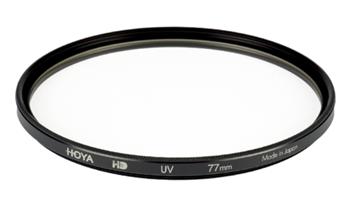Thanks to better quality and cheaper availability of DSLRs, more people than ever are taking their cameras and shooting in a variety of places and environments. People are exploring and reveling in the outdoors so it’s important to take care of your equipment and be prepared in any environment. Here are seven great camera care tips for enjoying the great outdoors!

Bag it
The core component of protecting your camera is getting and using a good bag. Cameras are delicate, they can get scratched very easily and dust can accumulate in the delicate parts. A camera bag does more than just protect the camera against scratches and dust: It protects it from moisture and banging around. We recommend the Lowepro Flip Side 400AW. This bag has large capacity, extra security features, body-side access and all-weather protection.
Take Care with the Lens and LCD Screen
The camera lens is the most important part of your camera. Always cap the lens for the best protection. Never use glass-cleaning products on the lens of your camera. You’ll destroy the lens’ anti-glare coating. Instead, use screen cleaners and microfiber cloths that have been specially designed to clean your camera lens. We recommend R.O.R. lens cleaning solution. You’ll get better images with clean equipment.
For fingerprints or unsightly smudges on your LCD screen, use a lint free microfiber cloth or Kenko’s LCD protection film, which protects against accidental damage, smudges and reduces flare and reflections.
Never Leave Your Batteries in Your Camera
Camera batteries are almost all alkaline or lithium these days, but if you keep the batteries inside the camera in a moist area, then the batteries can get corrosive. If you’re not planning to use your camera for several months, remove the batteries first and store them in quality weather resistant plastic battery holders. We recommend Foto & Tech battery storage cases. If you do get some corrosion on the batteries, you can use a pencil eraser to carefully rub the corrosion away but it is always best to have new, clean batteries in your camera for best results.

Protect the Sensor
Turn off the camera when swapping lenses, changing memory cards or disconnecting or attaching cables. Changing the lenses with the camera turned on will increase the chances that dust winds up on the sensor. Treat your camera like a computer because that is what digital cameras are now.

Weather Proof It
Cameras are delicate instruments and aren’t made to perform in inclement weather. One simple purchase will prepare you to deal with any weather and still get the shots you want. In cold, snowy or humid/wet conditions you should use a waterproof shield. We recommend Aquatech Sport Shields for the best protection. They are made from a three-ply Ripstop waterproof breathable fabric. They are super strong and provide excellent weatherproof performance.
Memory is precious
Memory cards are delicate, tiny computers. Treat them with care and store them in cardholders to keep them in top working condition. Keep memory cards away from dust, sand, and dirt at all times. Store memory cards only in cool/dry places. Never keep them in places where they may heat up, like dashboards or glove compartments. Avoid magnetic sources as well because they can cause damage to memory cards or erase them. We recommend Pelican micro cases that are watertight, crushproof and dust proof. If you don’t need weather tight protection, we recommend Think Tank memory card cases that are soft like a wallet and vary in style from wallets to lanyards.

Use Filters to Protect the Lens
The lens of your camera is naturally fragile and susceptible to scratches, cracks and breakage. Protecting it with a UV filter will give your lens the protection it needs and enhance the quality of your pictures. We recommend HOYA HD3 UV filter because it’s the toughest filter on the planet.


